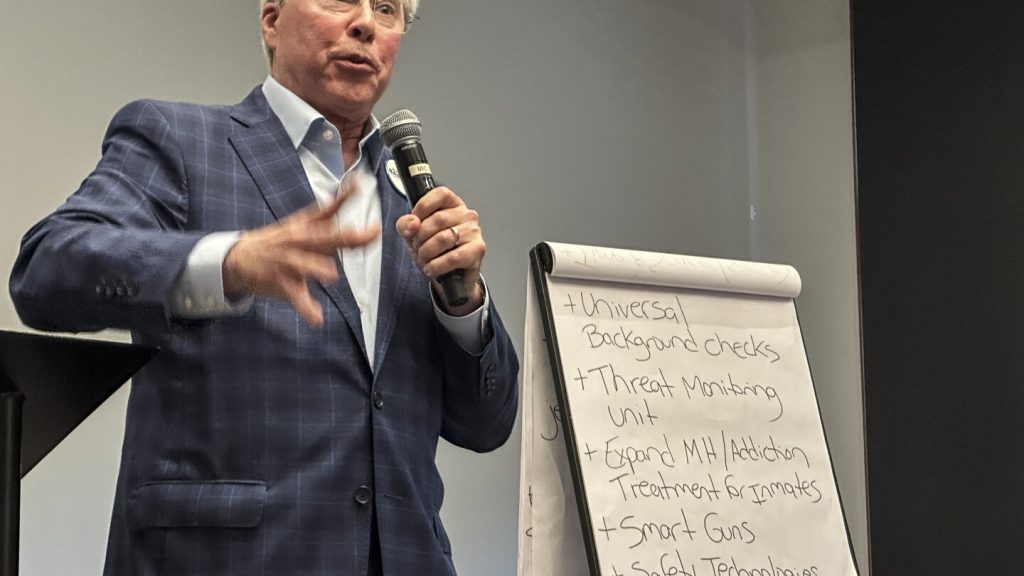Former Democratic congressman John Barrow filed a federal lawsuit claiming a state agency is trying to block him from discussing abortion ahead of the Georgia State Supreme Court election. The state agency had accused Barrow of violating state judicial ethics rules and demanded that his campaign ads comply with state rules, including one that prohibits candidates from making commitments on issues likely to come before the high court. Barrow is running against Justice Andrew Pinson in the nonpartisan election, with early voting ongoing and the election scheduled for May 21. The focus of Barrow’s campaign has been on abortion rights, specifically citing Georgia’s state constitution and Roe v. Wade.
Barrow believes that Georgia’s state constitution guarantees a right to abortion that is as strong as what Roe v. Wade provided before the 2022 overturn. He has criticized the 2019 Georgia law that bans most abortions after fetal cardiac activity can be detected, which typically occurs around the sixth week of pregnancy. This law is currently being challenged in a lower state court and may eventually reach the state Supreme Court. Barrow has accused Pinson, a Republican appointee, of being involved in supporting the case that led to the overturn of Roe v. Wade while serving as Georgia’s solicitor general, although Pinson has refused to discuss specific issues, warning against politicizing judicial races.
In response to the allegations, Barrow argued that the attempt to silence him violates his First Amendment right to free speech and his 14th Amendment right to equal protection. He referenced a 2002 U.S. Supreme Court ruling that supported candidates announcing their views on legal and political issues, maintaining that voters have the constitutional right to know where candidates stand on important matters. The Judicial Qualifications Commission, which issued the complaint against Barrow, contended that his actions went beyond permissible limits, alleging that he misrepresented the role of a jurist, failed to emphasize the duty of a judge to uphold the law, and made commitments on the abortion issue that could mislead voters.
Pinson’s campaign has criticized Barrow’s approach, accusing him of purposely politicizing judicial races to erode public trust in the courts. State supreme court races across the country have become increasingly political, leading to high-stakes battles that can influence the direction of the judiciary. In Georgia, where partisan divisions are prominent in elections, Barrow’s campaign is seen as a possible indicator of this trend arriving in the state. Despite Barrow’s efforts to highlight abortion rights in his campaign, he has faced pushback from some members of the legal establishment in Georgia, who are concerned about the implications of mixing politics with the judiciary.
Prior to Barrow’s lawsuit, Pinson’s campaign released a statement from several prominent legal figures in Georgia cautioning voters against supporting candidates who make public commitments on cases and issues. The statement emphasized the importance of preserving a nonpartisan judiciary that prioritizes the Constitution and the rule of law over personal preferences or campaign promises. The debate surrounding Barrow’s campaign and the broader implications for judicial races in Georgia reflect a larger national trend where state supreme court elections have become battlegrounds for ideological and political conflicts. Voters in Georgia will have to navigate these considerations as they decide the outcome of the upcoming state Supreme Court election.


